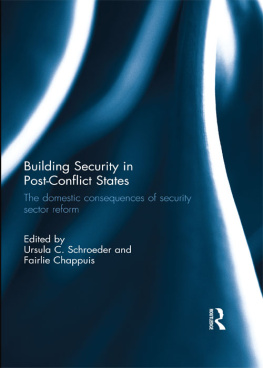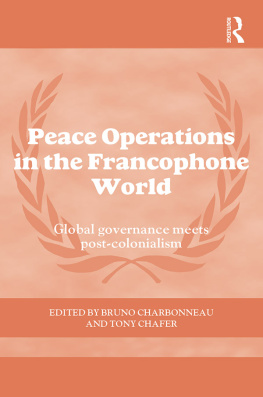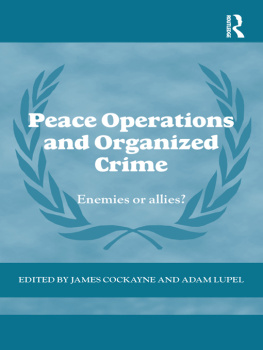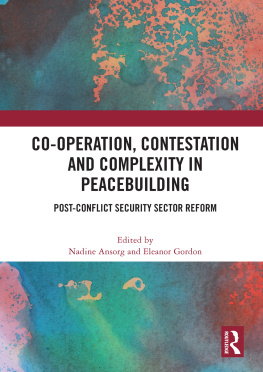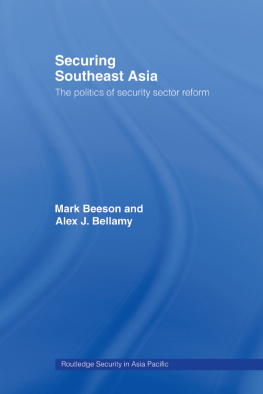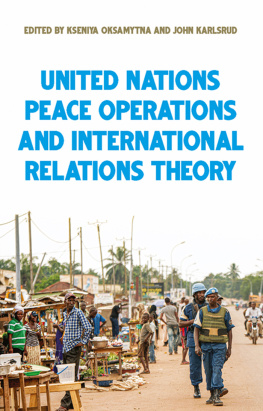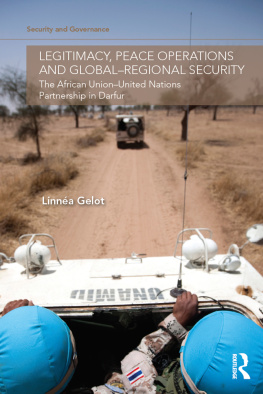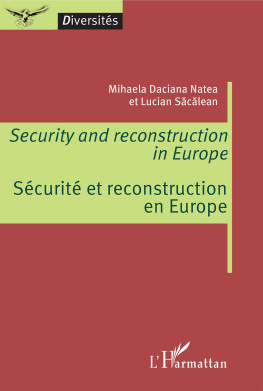Michael Brzoska - Security Sector Reconstruction and Reform in Peace Support Operations
Here you can read online Michael Brzoska - Security Sector Reconstruction and Reform in Peace Support Operations full text of the book (entire story) in english for free. Download pdf and epub, get meaning, cover and reviews about this ebook. year: 2016, publisher: Taylor & Francis, genre: Politics. Description of the work, (preface) as well as reviews are available. Best literature library LitArk.com created for fans of good reading and offers a wide selection of genres:
Romance novel
Science fiction
Adventure
Detective
Science
History
Home and family
Prose
Art
Politics
Computer
Non-fiction
Religion
Business
Children
Humor
Choose a favorite category and find really read worthwhile books. Enjoy immersion in the world of imagination, feel the emotions of the characters or learn something new for yourself, make an fascinating discovery.

- Book:Security Sector Reconstruction and Reform in Peace Support Operations
- Author:
- Publisher:Taylor & Francis
- Genre:
- Year:2016
- Rating:4 / 5
- Favourites:Add to favourites
- Your mark:
- 80
- 1
- 2
- 3
- 4
- 5
Security Sector Reconstruction and Reform in Peace Support Operations: summary, description and annotation
We offer to read an annotation, description, summary or preface (depends on what the author of the book "Security Sector Reconstruction and Reform in Peace Support Operations" wrote himself). If you haven't found the necessary information about the book — write in the comments, we will try to find it.
Michael Brzoska: author's other books
Who wrote Security Sector Reconstruction and Reform in Peace Support Operations? Find out the surname, the name of the author of the book and a list of all author's works by series.
Security Sector Reconstruction and Reform in Peace Support Operations — read online for free the complete book (whole text) full work
Below is the text of the book, divided by pages. System saving the place of the last page read, allows you to conveniently read the book "Security Sector Reconstruction and Reform in Peace Support Operations" online for free, without having to search again every time where you left off. Put a bookmark, and you can go to the page where you finished reading at any time.
Font size:
Interval:
Bookmark:

Michael Brzoska |
Johanna Mendelson Forman |
Heinz Vetschera and Matthieu Damian |
Andreas Heinemann-Grder and Igor Grebenschikov |
Ludovic Hood |
Osman Gbla |
Mark Sedra |
David M. Law |
- First, SSR is charged with the provision of security. This pertains to the protection from and prevention of political violence by state or non-state elements (such as criminal and militant opposition groups), which are a major problem of most post-conflict situations, particularly those with international presence. Linked to this provision of physical security, which primarily involves the police and the military, is the proper functioning of the courts and the prison system as well as small arms control.
Font size:
Interval:
Bookmark:
Similar books «Security Sector Reconstruction and Reform in Peace Support Operations»
Look at similar books to Security Sector Reconstruction and Reform in Peace Support Operations. We have selected literature similar in name and meaning in the hope of providing readers with more options to find new, interesting, not yet read works.
Discussion, reviews of the book Security Sector Reconstruction and Reform in Peace Support Operations and just readers' own opinions. Leave your comments, write what you think about the work, its meaning or the main characters. Specify what exactly you liked and what you didn't like, and why you think so.

